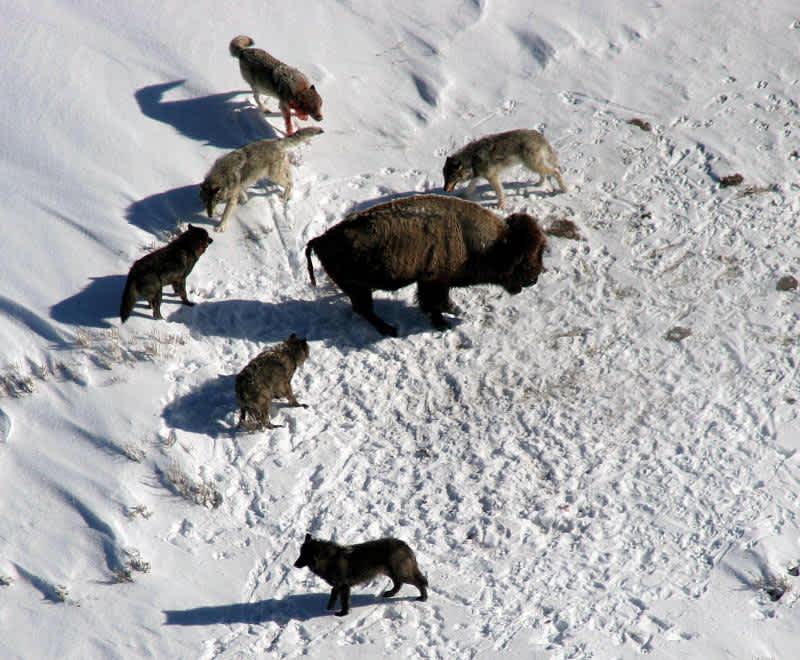Wyoming Officials Fight to Save Wolf Season, Governor Mead Files Emergency Rule
OutdoorHub Reporters 09.29.14

Last week Wyoming Governor Matt Mead signed an emergency rule in response to the recent decision by US District Judge Arm Berman Jackson to restore federal protection to the state’s wolf population. The emergency rule will establish a new management plan by the Wyoming Game and Fish Department (GFD) that officials hope will satisfy Jackson’s concerns, while still preserving this year’s upcoming wolf season. Governor Mead announced that the emergency rule will be in place for at least 120 days, but may be extended or become permanent by November.
“Now that Wyoming has resolved the Court’s concern, I hope the Court will amend its ruling and allow Wyoming’s continued management of gray wolves,” Governor Mead said in a press release.
Judge Jackson sided with animal rights groups earlier this month when she ruled that the state’s current management plan was inadequate. Control of the Wyoming’s wolves was originally handed over to Game and Fish from the US Fish and Wildlife Service (USFWS) in October of 2012. At the time, wildlife officials reported that there were 328 wolves living in the Wyoming outside of Yellowstone National Park, comprising a total of 48 packs. Like many states where the wolf population has grown to be considered significantly recovered, sportsmen and ranchers became increasingly worried that wolves were having an adverse effect on wildlife and livestock. To alleviate these fears and help control the population, Wyoming started a dual classification management system where wolves can be harvested as trophy animals or as predatory animals. These liberal hunting regulations were hotly protested by animal rights groups such as Defenders of Wildlife, the Sierra Club, Center for Biological Diversity, and the Natural Resources Defense Council, which criticized the state’s “hostile and extreme anti-wolf policies.”
Judge Jackson agreed and ruled that management of Wyoming’s wolf packs be returned to the USFWS. Game and Fish immediately stopped selling hunting permits and suspended the October 1 season, but they are hoping that the approval of the emergency rule will save the hunt. According to the Associated Press, Wyoming’s request to reverse the court decision must be accepted by the USFWS and plaintiffs in the case before the state can move forward with its management plans. Some activists, however, have already criticized the plan for changing too little.
“What we hope Wyoming does is they go back and put in place a plan that will actually ensure the long-term recovery and survival of wolves in the state,” Mike Senatore, general counsel for Defenders of Wildlife told the Casper Star-Tribune. “We continue to have major problems with the two-tiered status of wolves in the state.”
Yet the population of wolves in Wyoming appears to have only declined slightly since 2012. Game and Fish reports that 306 wolves still live in the state outside of Yellowstone, making up 43 packs. The department says it will announce any changes to the 2014 hunting season, but is working on a system to refund hunters their license fees if the season continues to be suspended.

